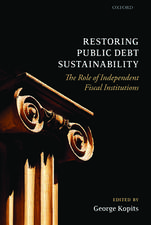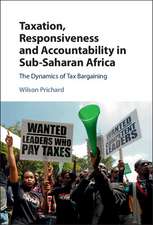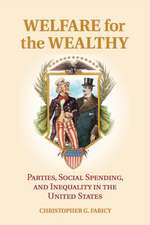Political Transformations and Public Finances: Europe, 1650–1913: Political Economy of Institutions and Decisions
Autor Mark Dinceccoen Limba Engleză Paperback – 21 aug 2013
| Toate formatele și edițiile | Preț | Express |
|---|---|---|
| Paperback (1) | 284.39 lei 6-8 săpt. | |
| Cambridge University Press – 21 aug 2013 | 284.39 lei 6-8 săpt. | |
| Hardback (1) | 723.09 lei 6-8 săpt. | |
| Cambridge University Press – 25 sep 2011 | 723.09 lei 6-8 săpt. |
Din seria Political Economy of Institutions and Decisions
-
 Preț: 133.60 lei
Preț: 133.60 lei -
 Preț: 208.93 lei
Preț: 208.93 lei -
 Preț: 235.99 lei
Preț: 235.99 lei -
 Preț: 200.85 lei
Preț: 200.85 lei -
 Preț: 211.84 lei
Preț: 211.84 lei -
 Preț: 231.82 lei
Preț: 231.82 lei -
 Preț: 306.68 lei
Preț: 306.68 lei -
 Preț: 208.14 lei
Preț: 208.14 lei -
 Preț: 177.53 lei
Preț: 177.53 lei -
 Preț: 295.55 lei
Preț: 295.55 lei -
 Preț: 236.43 lei
Preț: 236.43 lei -
 Preț: 265.11 lei
Preț: 265.11 lei -
 Preț: 228.38 lei
Preț: 228.38 lei -
 Preț: 281.49 lei
Preț: 281.49 lei -
 Preț: 285.37 lei
Preț: 285.37 lei -
 Preț: 279.98 lei
Preț: 279.98 lei - 14%
 Preț: 773.75 lei
Preț: 773.75 lei -
 Preț: 233.38 lei
Preț: 233.38 lei -
 Preț: 247.41 lei
Preț: 247.41 lei -
 Preț: 203.12 lei
Preț: 203.12 lei -
 Preț: 230.33 lei
Preț: 230.33 lei -
 Preț: 286.69 lei
Preț: 286.69 lei - 14%
 Preț: 790.57 lei
Preț: 790.57 lei -
 Preț: 265.32 lei
Preț: 265.32 lei - 11%
 Preț: 554.15 lei
Preț: 554.15 lei -
 Preț: 287.07 lei
Preț: 287.07 lei - 11%
 Preț: 700.20 lei
Preț: 700.20 lei -
 Preț: 273.13 lei
Preț: 273.13 lei -
 Preț: 459.84 lei
Preț: 459.84 lei -
 Preț: 280.35 lei
Preț: 280.35 lei -
 Preț: 260.11 lei
Preț: 260.11 lei - 11%
 Preț: 640.30 lei
Preț: 640.30 lei -
 Preț: 286.89 lei
Preț: 286.89 lei -
 Preț: 247.80 lei
Preț: 247.80 lei - 11%
 Preț: 691.81 lei
Preț: 691.81 lei -
 Preț: 287.48 lei
Preț: 287.48 lei - 11%
 Preț: 641.80 lei
Preț: 641.80 lei - 11%
 Preț: 635.32 lei
Preț: 635.32 lei -
 Preț: 271.01 lei
Preț: 271.01 lei -
 Preț: 265.70 lei
Preț: 265.70 lei
Preț: 284.39 lei
Nou
Puncte Express: 427
Preț estimativ în valută:
54.42€ • 56.71$ • 45.06£
54.42€ • 56.71$ • 45.06£
Carte tipărită la comandă
Livrare economică 03-17 aprilie
Preluare comenzi: 021 569.72.76
Specificații
ISBN-13: 9781107617759
ISBN-10: 1107617758
Pagini: 250
Ilustrații: 23 tables
Dimensiuni: 152 x 229 x 14 mm
Greutate: 0.37 kg
Editura: Cambridge University Press
Colecția Cambridge University Press
Seria Political Economy of Institutions and Decisions
Locul publicării:New York, United States
ISBN-10: 1107617758
Pagini: 250
Ilustrații: 23 tables
Dimensiuni: 152 x 229 x 14 mm
Greutate: 0.37 kg
Editura: Cambridge University Press
Colecția Cambridge University Press
Seria Political Economy of Institutions and Decisions
Locul publicării:New York, United States
Cuprins
1. Weak and strong states in historical perspective; 2. Gaining force: from fragmentation to centralization; 3. Restricting power: from absolutism to limited government; 4. Political regimes and credit risk; 5. Two mechanisms; 6. Letting the data speak for themselves; 7. Estimating the fiscal effects of political regimes; 8. The institutional balance of modern fiscal states.
Recenzii
'Mark Dincecco has set a keystone atop the new literature seeking to explain the stark international differences in the modern rise of government financial capacity. We have long wondered whether government centralization and limitations on executive power have shaped the ability to wage war and to invest in modern economic growth. Previous authors have been forced to narrate within smaller, more constrained contexts, in search of easy natural experiments. Dincecco takes advantage of the very historical breaks that have constrained others. His structural-breaks perspective neatly captures both the unique and the general effects of institutional shocks. The book will command attention among all social scientists seeking a deeper understanding of the political and historical sources of government fiscal crises.' Peter H. Lindert, Distinguished Research Professor of Economics, University of California, Davis
'In a pioneering work of political economy and economic history, Mark Dincecco analyzes how European states developed effective fiscal systems that could fund wars, pay for education and public works, and cut the risk on sovereign debt. The two essential steps were political centralization and limiting the power of absolute rulers, with most European states taking the first step during the French Revolution and the second one later in the nineteenth century. Dincecco tests his argument with nearly three centuries of magnificent quantitative data. The results will be of great interest to economists, historians, sociologists, and political scientists.' Philip T. Hoffman, Rea A. and Lela G. Axline Professor of Business Economics and Professor of History, California Institute of Technology
'This book conclusively establishes that it was the institutional innovations of state centralization and representative government that created the modern fiscal state in Europe. A fundamental work.' James A. Robinson, Harvard University
'In a pioneering work of political economy and economic history, Mark Dincecco analyzes how European states developed effective fiscal systems that could fund wars, pay for education and public works, and cut the risk on sovereign debt. The two essential steps were political centralization and limiting the power of absolute rulers, with most European states taking the first step during the French Revolution and the second one later in the nineteenth century. Dincecco tests his argument with nearly three centuries of magnificent quantitative data. The results will be of great interest to economists, historians, sociologists, and political scientists.' Philip T. Hoffman, Rea A. and Lela G. Axline Professor of Business Economics and Professor of History, California Institute of Technology
'This book conclusively establishes that it was the institutional innovations of state centralization and representative government that created the modern fiscal state in Europe. A fundamental work.' James A. Robinson, Harvard University
Notă biografică
Descriere
Mark Dincecco examines the long-term evolution of political regimes and public finances in Europe.


















